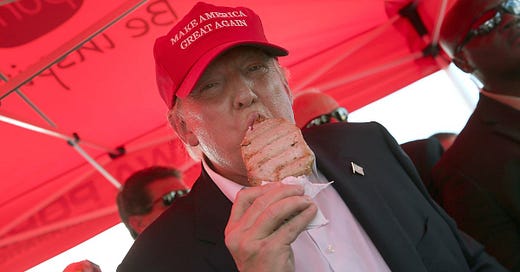Trump Didn't Make It Cool; He Just Exploited It
Republicans Hating their Own Party Predates Trump by a Decade
Keep reading with a 7-day free trial
Subscribe to The Duckpin to keep reading this post and get 7 days of free access to the full post archives.





